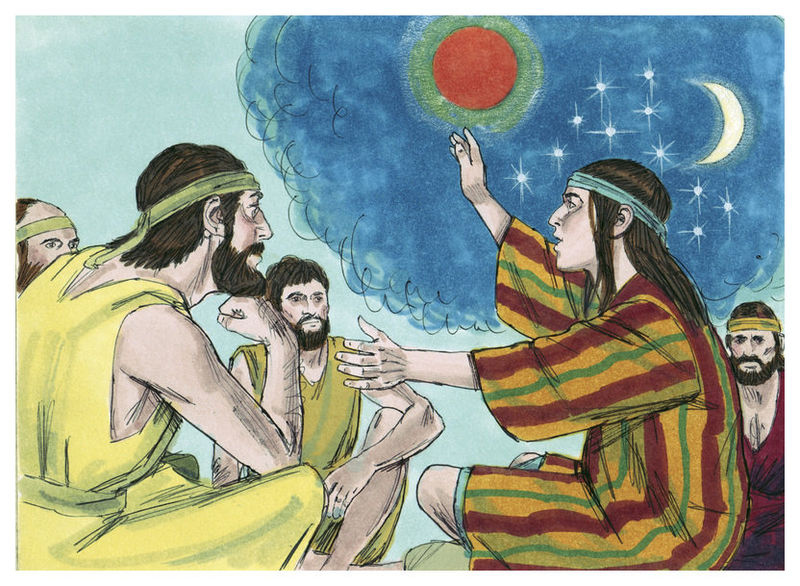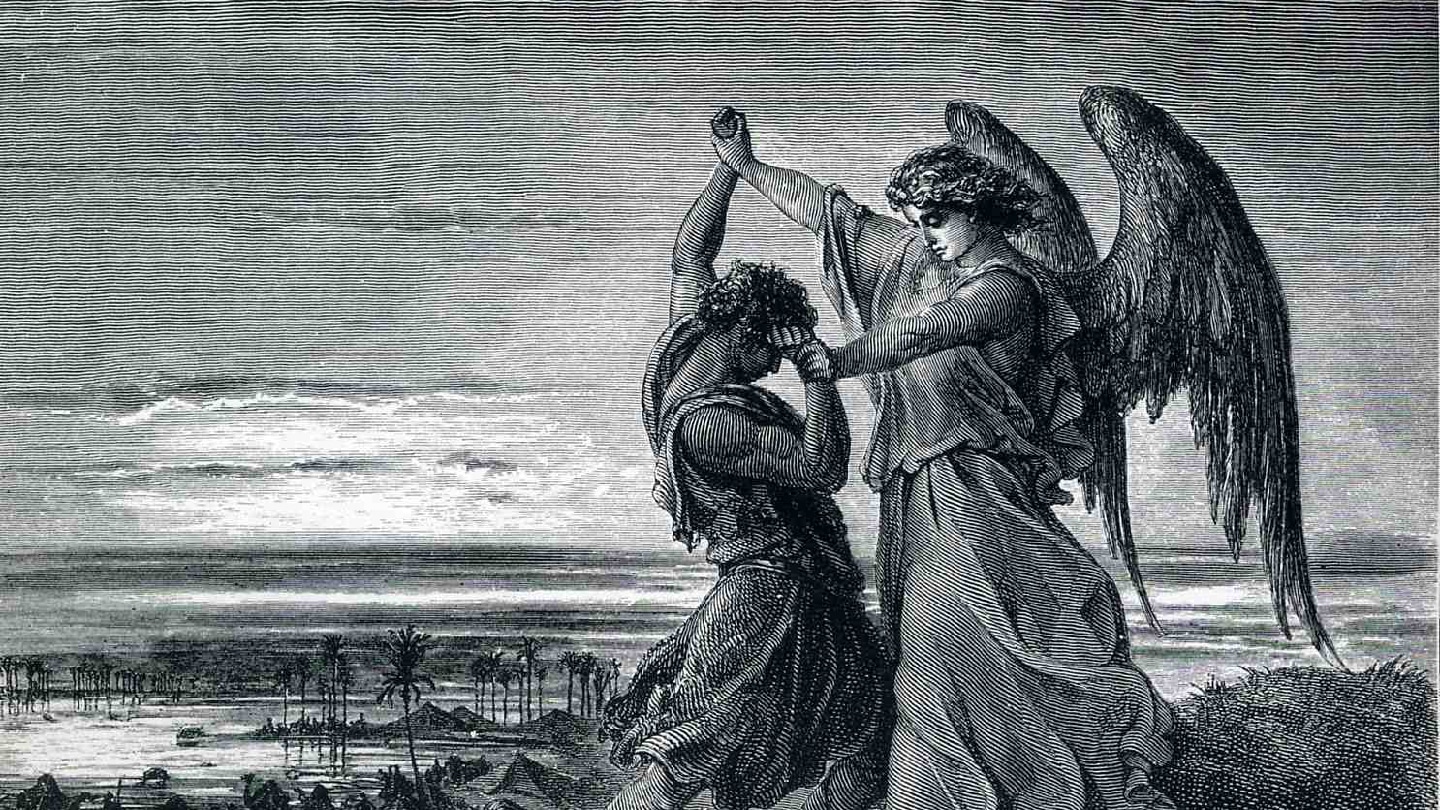Bonjour / Hello [nickname_else_first_name],
Table of contents
1) Perashat Hashavoua - Rabbi Eli Mansour
2) Halakhat Hashavoua (Halakhot related to day to day life) By Hazzan David Azerad - Laws of Hannukah
3) Holy Jokes!
1)PERASHAT HASHAVOUA
This Week's Parasha Insight with Rabbi Eli Mansour
Parashat Vayeshev- The Precious Value of Silence
We read in Parashat Vayeshev of the hatred that Yosef’s brothers felt toward him. The background to their hatred is the special love shown to Yosef by their father, Yaakob, who made him a special garment ("Ketonet Pasim" – 37:3), as well as Yosef’s bringing negative reports about them to their father (37:2).
The Gemara in Masechet Shabbat (10b) comments that a parent must ensure not to show favoritism to one child over the others, noting that "because of the extra two Sela’im-worth of fine wool that Yaakob gave to Yosef more than his other sons, his brothers envied him, and this resulted in our forefathers descending to Egypt." Yakaob’s favoritism toward Yosef fueled the brothers’ hatred which ultimately led them to sell him as a slave to Egypt, such that the special garment given to Yosef can be said to have indirectly caused the Egyptian exile.
A number of commentators raised the question of why the Gemara emphasizes that the garment weighed "two Sela’im." Why is this detail relevant to the message being taught, that one must ensure to avoid showing favoritism to one of his children?
Some Rabbis offered a deeper explanation of the Gemara’s comment, suggesting that the Gemara alludes here to a hidden message latent within the garment which Yaakob gave to Yosef.
Elsewhere in the Talmud, in Masechet Megilla (18a), the Gemara teaches, "Mila Be’sela, Mashtuka Bi’trein" – "A word is worth a Sela, silence is worth two [Sela’im]." Very often, remaining silent is far more effective, and powerful, than speaking. Yaakob gave Yosef a garment made from two Sela’im of wool as an allusion to the importance of silence, which is described as having the value of two Sela’im. As mentioned, Yosef regularly brought his father negative reports about what he perceived as his brothers’ misconduct. Of course, his intentions were sincere and pure; we may reasonably assume that Yosef was well versed in the laws of Lashon Ha’ra, and knew the conditions that must be met to allow speaking negatively about other people, including the condition of pristinely sincere motives. There is no doubt that Yosef was not looking to cause trouble or to earn his place as Yaakob’s favorite son, but rather brought this information to Yaakob’s attention so he could address his sons’ behavior. Nevertheless, under the circumstances, with brewing tensions, Yosef should have remained silent. Not everything that can be said should be said.
This is why Yosef’s garment is referred to as "two Sela’im-worth of fine wool." Yaakob gave Yosef two Sela’im to impress upon him the great value of silence, which is worth "two Sela’im," twice as much as a spoken word.
It goes without saying that we should not be speaking negatively to or about people out of anger, spite or revenge. This is clearly forbidden. But the Gemara here indicates to us that even when our intentions are noble and sincere, criticism is not always wise. Very often, silence is far more prudent, far more effective, and far preferable. Even when we see value in saying something, we need to consider the possibility that refraining from saying it will yield a more desirable outcome. Let us never underestimate the precious value of silence, and let us always ensure to think very carefully before expressing any sort of criticism or negativity.
2) HALAKHAT HASHAVOUA
Halachot this week are selected and Translated by Hazzan David azerad
The Laws of Hanukkah according to the rulings of Rabbi Obadia Yosef ZT”l
What are the blessings for lighting the candles on Hanukkah?
Before lighting the Chanukia on the first night, there are three blessings 1-….. Lehadlik ner Shel Chanukah 2. She'asa Nisim 3. She'hecheyanu .And at the end of the blessings, a candle is lit.
From the second night onwards, one will recite only the first 2.
In all mitzvahs there are no inhibiting blessings and the same is true for the Hanukkah candle, if he lit a Hanukkah candle and did not bless it at all, he has neglected his duty, and is not allowed to extinguish the candles and come back and light them with a blessing.
After he blessed the lighting of the candles, he will not stop even with a hint until he begins the lighting matzahs. He is allowed to imply that oil or matches will be brought to him, since he needs the lighting, and in retrospect he even stopped talking for the lighting, he does not repeat and bless.
The one who lit his house on the first night and blessed all the blessings, including that we live, and comes to light it in his friend's house, simply returns and blesses that we live.
Do women and small children also have to light Hanukkah candles?
The women are also obliged to light a Hanukkah candle. Therefore, a woman who lives in her home alone must light the candles with all the blessings, but married women or unmarried girls in their parents' homes do not have to light a Hanukkah candle at all, and are obliged to light a Hanukkah candle with their husband or father, even according to the Ashkenazi custom of lighting each member of the household.
A minor under the age of bar mitzvah should not be allowed to light a Hanukkah candle, since he is not legally obligated to light it, and only his father is responsible for educating him in the mitzvah, therefore the minor does not exclude others from their obligation but might light his own for Chinuch should he want.
Bevirkat Shabbat Shalom Umevorach
David Azerad
3) HOLY JoKeS!!
Selection of funny snippets, loosely related to this weeks parashah or current events, to brighten your day







 Maghen Abraham would like to wish you and your family a HAPPY HANNUKAH!
Maghen Abraham would like to wish you and your family a HAPPY HANNUKAH!






